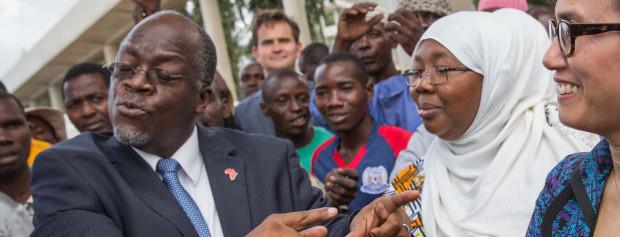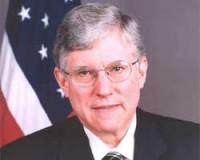“We are bound by fear”: Côte d’Ivoire’s messy presidential election

Many citizens have experienced the election process not as an opportunity to express their voice but as a familiar contest among political elites.

President Alassane Dramane Ouattara looks set to secure a controversial third term in the Côte d’Ivoire presidential election. Credit: Présidence de la République du Bénin.
When Côte d’Ivoire votes in the presidential election on 31 October, the fate of the nation will be at stake. Political tensions in the country are running high, there have been instances of deadly pre-election violence, and mistrust is rising.
Ivorians who go to the polls will be faced with a choice of just two candidates. The first is President Alassane Ouattara of the ruling Rassemblement des Houphouetistes pour le Dévelopement et la Paix (RHDP). The 78-year-old has been in power since the contentious 2010 elections and is running for a third term. Many believe this is unconstitutional given the country’s two-term limit, but the president’s supporters argue that the clock was reset when a new constitution was approved.
Ouattara’s only opponent still in the race is the relative unknown independent Kouadio Konan Bertin. The election is perhaps more notable, however, for who is not running.
Earlier this year, 44 candidates registered to take part in Côte d’Ivoire’s presidential election. The electoral commission barred 40 of those, including former president Laurent Gbagbo and influential former rebel chief and prime minister Guillaume Soro. Two of the candidates that were approved – former president Henri Konan Bedié and Gbagbo’s former prime minister Affi N’guessan – have since called on supporters to boycott the vote.
This has all added up to a highly polarised political environment reminiscent 2010-11 when around 3,000 people were killed in post-election fighting. Rather than feeling engaged in or excited by the electoral process, many voters are scared of what it might bring.
As Sanogo Rokia, a young entrepreneur, told African Arguments: “We are bound by fear. We do not know what will happen in coming weeks…The problem is the political class…They do not care about us.”
A failure to learn lessons
Many Ivorian citizens today feel like the country has been taken hostage by politicians. They are pessimistic about the future and frustrated at generations of divisive politics, corruption and patrimonialism. Since the death of Côte d’Ivoire’s first president Félix Houphouët-Boigny in 1993, the world’s biggest cocoa producer has had repeated crises – including two civil wars – and many feel their political leaders have never learnt the lessons of this history.
Following the 2011 post-election violence, President Ouattara did establish some transitional justice institutions such a Truth and Reconciliation Commission and a National Commission of Enquiry. But the work of these bodies was quickly politicised and the government did little to respond to their recommendations. Moreover, unlike in Liberia and Sierra Leone where citizens advocated for their governments to take the recommendations from transitional justice reports seriously, Côte d’Ivoire did not experience the same collective mobilisation.
Rather than cultivating a spirit of “never again”, many citizens simply hope that the divisionism of the past will end when the leaders responsible for Côte d’Ivoire’s factionalism finally retire.
“I think we are on the final episode of the political battle,” says a young female pharmacist who asked to remain anonymous. “The three main figures – [former or current presidents] Gbabgo, Ouattara and Bedié – will more likely disappear from the political space [after this election]”.
For the leaders, by the leaders
Ivorians had hoped that this chapter of the country’s politics would be ending in this election itself. Earlier this year, President Ouattara said that he would not contest for a third term. Soon after, the ruling party nominated then prime minister Amadou Gon Coulibaly to be their presidential candidate. In July, however, Coulibaly passed away. The next month, Ouattara announced his re-entry into the race.
This sparked protests in several town and cities, particularly those that support the opposition. Around twenty people are reported to have been killed by security forces in these demonstrations. One civil society leader explained the urgency of these protests, saying: “If we accept this situation, it is like we are opening Pandora’s box. No one will respect the constitutional limits.” Alongside the protests, opposition parties have also called for a boycott of the election.
As a result, Côte d’Ivoire is in a strange situation where the ruling party and electoral commission are heading towards a vote, while opposition figures insist that there will be no election on 31 October.
Caught in the middle are ordinary citizens. For them, the election has little bearing on their day-to-day concerns. They feel distant from the country’s politics and see the election not as an opportunity to express their democratic voice but as a mere contest among elite politicians.
“Ivoirians are not happy about their leaders,” says Daple Rebecca, a recent law graduate at the University of Daloa. “They are playing double game. The current situation is similar to what we suffered in 2010.”





